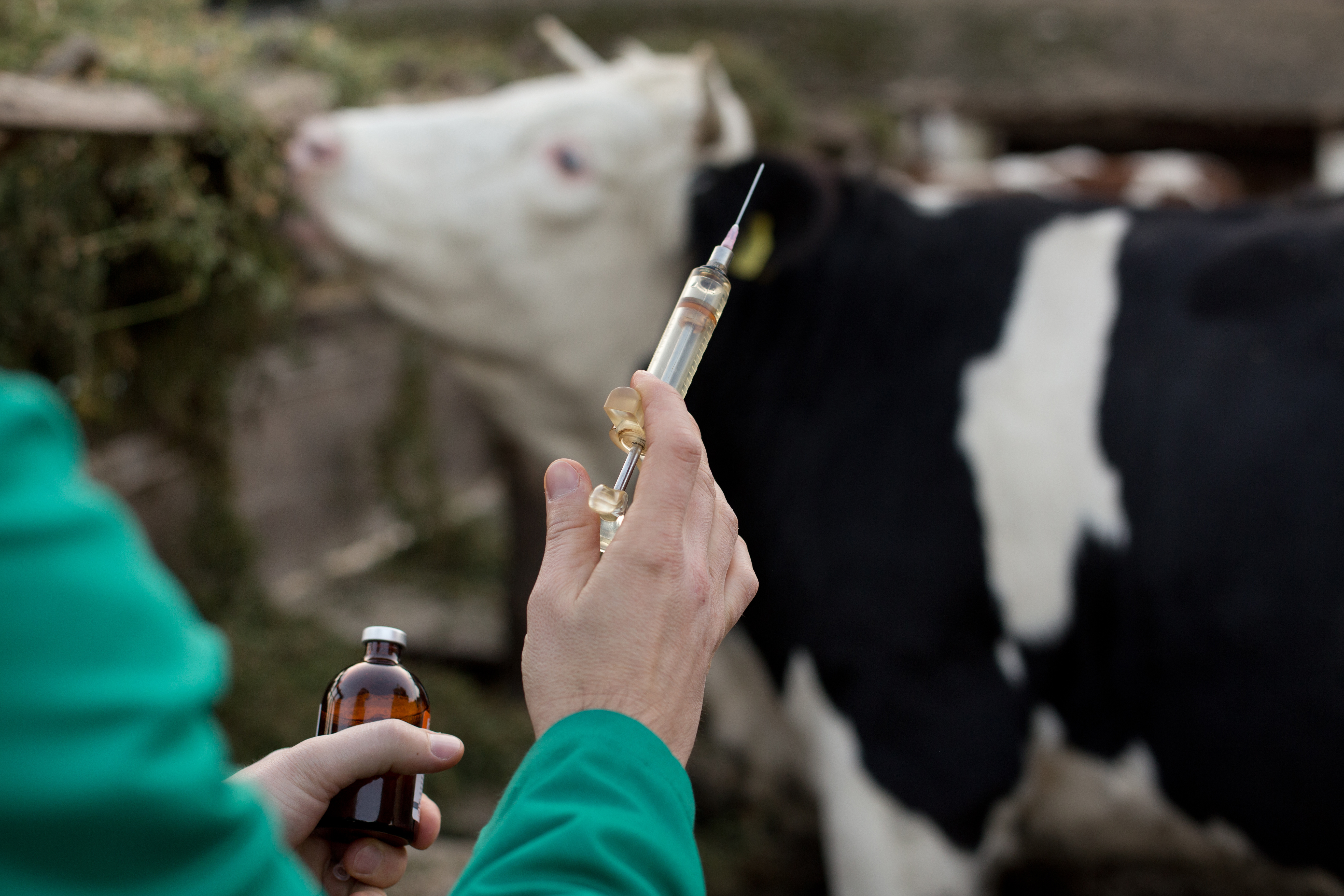How Can We Support Our Large Animal Vets and Encourage New Ones?
November 18, 2022 | Godfrey Tyler and Jean Schlicklin Tyler

Farmers need access to a local vet. Realistic, local support on the ground needs to be a priority. As a small family farm in Ontario, we are concerned about the current situation. The system is failing agriculture as the necessary supporting infrastructure—access to local veterinarians—does not exist in many areas of Ontario.
The Veterinary Assistance Program (VAP) to support local vets in underserved areas is badly in need of review. Local vet clinic revenue streams are undermined by mail-order livestock drugs, which are widespread in Ontario. Ontario Veterinary College (OVC) is not graduating the large animal vets that are needed in farming communities.
Ontario currently has a VAP which pays designated local vets for travel to farms, lowering costs for in-person veterinary service. The current travel rate has not been changed in years and needs to be increased. Even more concerning, there are several communities in the VAP without any large animal service. Our community is a part of that list.
Livestock medicine pricing and business models for medicine procurement need to be reviewed province-wide. The Veterinarians Act currently requires a once-a-year farm visit from a vet for farmers to access necessary medications. This mail-order business model does not include on-farm medical care and does not require the veterinarian to respond to emergency concerns on the farm. Medication sales are a part of local clinics’ revenue stream, which is undermined by this system of mail- order livestock drugs. This puts many smaller vet clinics in jeopardy because of lack of local medication sales.
Local support on the ground needs to be the highest priority. Should an incident occur that needs more than just drugs, how can a local vet respond when they are not included in the day-to-day routine of the farm?
The recent provincial “Livestock Veterinarian Innovation Initiative” program improves access to telemedicine, but many communities are lacking the supporting infrastructure for the local small farmers and vets. The best parallel is Telemedicine for people. Often in consultation with the phone advisor, people are advised to go to an Emergency Room or family doctor for further assessment and care. The system fails for agriculture at this point as the supporting infrastructure—a local vet—does not exist. If the consulting vet is at an unrealistically long distance to respond, it abandons the farmer and their animals.
The OVC’s current criteria for entrance has not resulted in enough graduated trained large animal vets. We understand that applicants for OVC need an exceptional academic standing. Past livestock history seems minimally valued. We have heard that the scheduling of classes tends to discourage specific classes for large animal care in an appropriate timetable. We also understand that students get little training in the large animal sector while at OVC, undermining student confidence in handling large animals. We are personally aware of individuals who have had to go out of Canada to get large animal training.
The program is not graduating the number of large animal vets that are needed in communities. What is a realistic positive percentage benchmark of graduates trained and prepared for dedicated large animal or mixed practices? What changes are required to improve the skills and overall number of future large animal graduates? This is an issue raised in the recent Acer report of lack of confidence in graduates.
All farmers continue to care for their livestock. Having policy and solutions that are truly supportive of all livestock owners has been the objective of agriculture for generations. We are concerned about the quality of information being used for developing government policies to support farmers and veterinarians. Solutions to this crisis to solve the problems of large animal care will need courage and authority with action at the ministerial level. Listening to people on the ground is vital on a regular basis.
As CFFO members, we need to pray that those in authority will listen and discern what actions need to happen tomorrow; what can be improved in 18 months; what actions will improve the situation in five years. We are praying for those with responsibilities, seeking realistic solutions in the large animal care crisis that Ontario is experiencing.
Godfrey Tyler and Jean Schlicklin Tyler are members in East Central District of the Christian Farmers Federation of Ontario. The CFFO Commentary represents the opinions of the writer and does not necessarily represent CFFO policy. The CFFO Commentary is heard weekly on CFCO Chatham, CKXS Chatham, CKNX Wingham, and CHLP Listowel.
 Skip to main content
Skip to main content